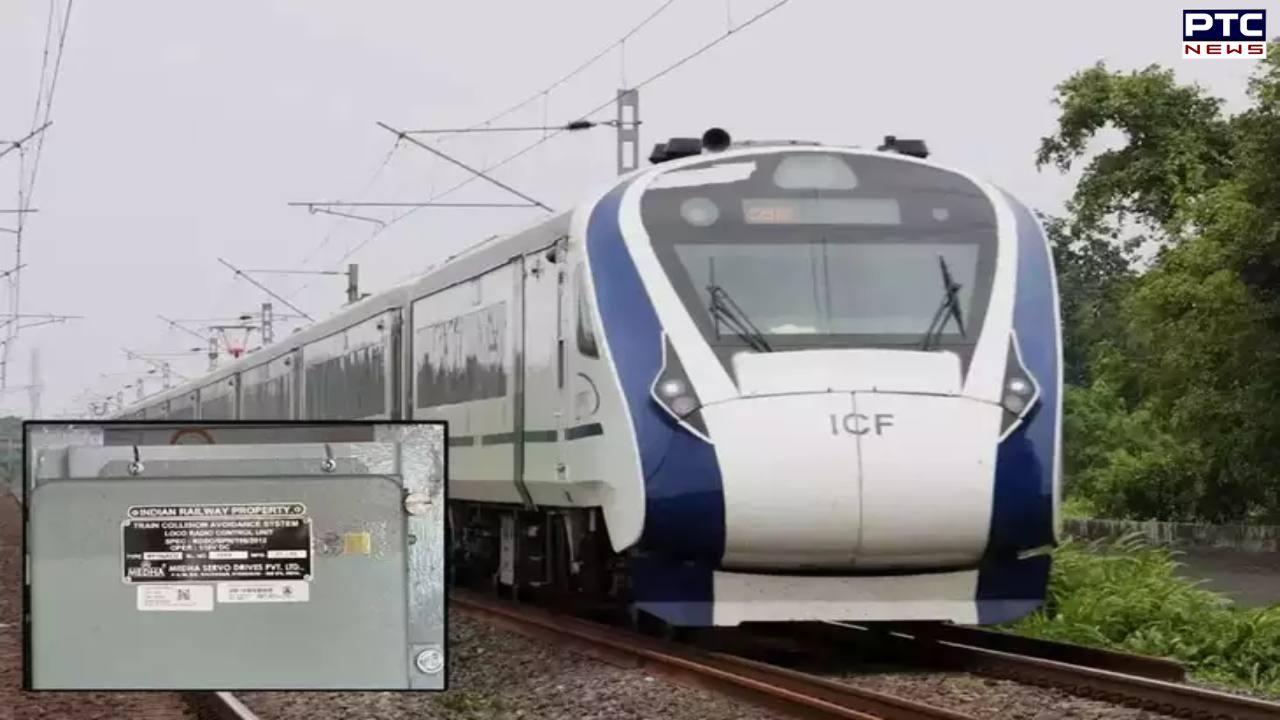

What is Kavach, India's game-changing train protection system? How does it work?
PTC News Desk: Indian Railways, often referred to as the lifeline of India's transport network, is a massive system that spans over 1.3 lakh km of track, connects 7,335 stations, and transports 23 million passengers daily.
This massive network is important to the nation's growth and development, but it has also served as a symbol for decades of train safety concerns. The Indian Railways has been plagued by fatal incidents in the past, notably the infamous Firozabad tragedy in 1995, which killed 358 people, and the Khanna and Gaisal crashes that followed in subsequent years, which killed hundreds.
For years, such accidents have highlighted the critical need for stronger safety measures on Indian Railways. Despite being one of the world's largest railway networks, Indian Railways waited over 70 years after independence to implement Automatic Train Protection (ATP) technology. However, with the introduction of Kavach, the scenario has begun to shift significantly.
What is Kavach?
Kavach, which means "shield" in Hindi, is a cutting-edge, indigenous ATP system meant to safeguard trains. Kavach is a ground-breaking initiative created by the Research Design and Standards Organisation (RDSO) in partnership with Indian industries such as HBL Power Systems, Kernex, and Medha to eliminate rail accidents.
How does it work?
The technology monitors train speeds, notifies operators of possible risks, automatically stops trains when necessary, and maintains smooth operations even in bad weather.
Kavach's impact on Indian Railways has been nothing short of revolutionary. The number of consequential accidents has reduced dramatically, from 473 in 2000-01 to just 40 in 2023-24, demonstrating the effectiveness of the safety measures implemented.
The government's dedication to railway safety is seen in initiatives such as the Rashtriya Rail Sanraksha Kosh, a Rs 1 lakh crore fund announced in 2017. The fund, which aims to renew and improve vital safety assets, has played an important role in lowering accidents. In 2023, the government expanded the fund by Rs 45,000 crore for five years, showing its dedication to enhancing rail safety.
Incredible journey of 'Kavach'
Starting with field trials in 2016 and receiving SIL4 certification in 2019, the system was formally authorised as the national ATP solution for Indian Railways in 2020. Despite the disruptions created by the COVID-19 outbreak, the Indian Railways continued to develop Kavach, a system that promises to improve safety across the network.
Looking ahead, Indian Railways has set an ambitious aim of implementing Kavach across 44,000 kilometres of track over the next five years. This would make the Indian railway system not only safer but also more efficient, surpassing even the United States passenger train network, which covers around 35,000 kilometres.
The expansion is well underway, with over 301 locomotives and 273 stations already equipped with the system. Kavach is designed to eliminate fatalities caused by human mistakes, which is one of the leading causes of train accidents.
- PTC NEWS
